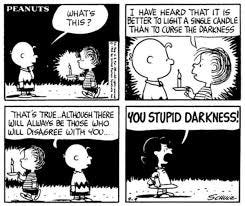Looking forward to getting over the virus that sent me to the Vandy walk-in clinic twice in the last four days (and home yesterday with antibiotics).
And, looking forward to speaking with Agnes Callard Friday afternoon before her Lyceum address about her new book Open Socrates, and her advocacy of a kind of Socratic intellectualism.
In preparation, I've revisited what William James says about "vicious intellectualism"— it confuses words and concepts for the reality they intend to illuminate.
And, I've revisited Richard Hofstadter's 1963 classic Anti -intellectualism in American Life. Its message: anti-intellectualism has been the more vicious strain in our national experience. It certainly is now. "Turning answers into questions" may just be the Socratic salvation the times demand.
"As with the pursuit of happiness, the pursuit of truth is itself gratifying whereas consummation often turns out to be elusive. Truth captured loses its glamour; truths long known and widely believed have a way of turning false with time; easy truths are bore and too many of them become half truths. Whatever the intellectual is too certain of, if he is healthily playful, he begins to find unsatisfactory. The meaning of his intellectual life lies not in the possession of truth but in the quest for new uncertainties. Harold Rosenberg summed up this side of the life of the mind supremely well when he said that the intellectual is one who turns answers into questions."
"The citizen cannot cease to need or to be at the mercy of experts, but he can achieve a kind of revenge by ridiculing the wild-eyed professor, the irresponsible brain truster, or the mad scientist, and by applauding the politicians as the pursue the subversive teacher, the suspect scientist, or the allegedly treacherous foreign-policy adviser. There has always been in our national experience a type of mind which elevates hatred to a kind of creed; for this mind, group hatreds take a place in politics similar to the class struggle in some other modern societies. Filled with obscure and ill-directed grievances and frustrations, with elaborate hallucinations about secrets and conspiracies, groups of malcontents have found scapegoats at various times in Masons or abolitionists, Catholics, Mormons, or Jews, Negroes, or immigrants, the liquor interests or the international bankers. In the succession of scapegoats chosen by the followers of this tradition of Know-Nothingism, the intelligentsia have at last in our time found a place."
"Let us admit the case of the conservative," John Dewey once wrote. "If we once start thinking no one can guarantee what will be the outcome, except that many objects, ends and institutions will be surely doomed. Every thinker puts some portion of an apparently stable world in peril, and no one can wholly predict what will emerge in its place." Further, there is no way of guaranteeing that an intellectual class will be discreet and restrained in the use of its influence; the only assurance that can be given to any community is that it will be far worse off if it denies the free uses of the power of intellect than if it permits them. To be sure, intellectuals, contrary to the fantasies of cultural vigilantes, are hardly ever subversive of a society as a whole. But intellect is always on the move against something: some oppression, fraud, illusion, dogma, or interest is constantly falling under the scrutiny of the intellectual class and becoming the object of exposure, indignation, or ridicule.




